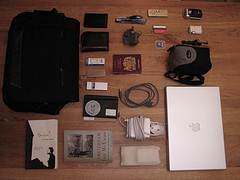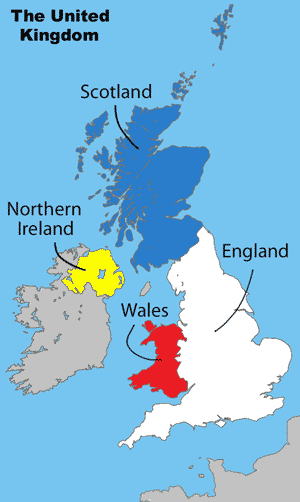1. Isabel bought a lot of things for Paco
 |
| By Roo Reynolds. Creative Commons |
Isabel saw too much useful stuff for Paco, but she knew she could not buy so many things.
Paco wanted to carry a lot of articles with him, although he knew that he could buy anything he would need anywhere.
At the end, he changed his mind and he tried to take just a few things, the most necessary ones.
As Paco likes video recording and photography a lot, he took his two cameras for sure, but he had some doubts about taking his laptop with him.
| went |
can |
| bought | to know |
| thought | to have |
| needed | to want |
| decided | to buy |
| saw | to go |
| could | to need |
| wanted | to try |
| knew | to think |
| changed | to take |
| tried | to see |
| liked | to decide |
| took | to change |
| had | to like |
|
by adding -ed to the main verb, like wanted (< to want).
| |
|
by adding -ing to the main verb.
|
|
because it ends in -ed.
| |
|
We can't distinguish it by its form. |

|
| By Matt Lewis. Creative Commons |
So the UK is made up of four countries:
England, Scotland, Wales and Northern Ireland, the last of which is not a part of
Great Britain. The formal name of the country is the “United Kingdom of Great
Britain and Northern Ireland”, but in everyday speech Britain is often used to
mean the UK, though, as you have seen, this is not perfectly correct.
The word “great” was added to “Britain” several hundred years ago, in the Middle Ages, when the English kings had lands in what is now France, and a certain part of it was called Britanny. To avoid confusion, they added the word “great” to the name of the land which was larger.
In order to enlarge your knowledge and to solve some possible doubts you may find with the Simple Past Tense, have a look here.
In case you need further practice, then click here.